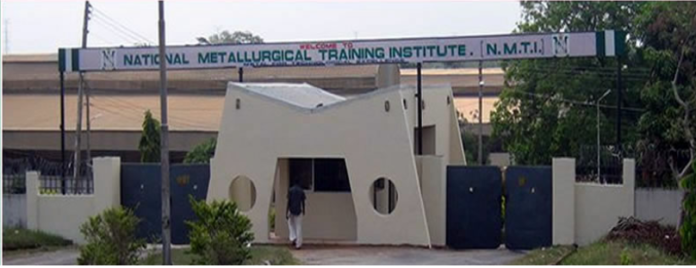Metallurgical Training Institute feasibility study done back in 1979
By Jeph Ajobaju, Chief Copy Editor
A bill to establish the National Metallurgical Training Institute scaled second reading in the Senate on Tuesday to ensure closure on the feasibility study done 42 years ago to create it in Onitsha, the city with the largest market in West Africa.
A Second Niger River Bridge is also under construction in Onitsha, the gateway by road from Lagos through Benin City to the entire South East and South South.
Onitsha, therefore, provides an ideal location from where the institute can effectively serve the oil and steel industries in the South East and South South as well as the Ajaokuta Steel Mill in Kogi in the North Central.
But Senator Uche Ekwunife (PDP, Anambra) has argued that the institute should be relocated from Onitsha, where it has been in existence since 1980.
The bill only seeks to formally establish and upgrade the institute.
The National Metallurgical Training Institute (Establishment) Bill 2021, sponsored by Senate Leader Yahaya Abdullahi (APC, Kebbi North), was read for the first time on September 15.
__________________________________________________________________
Related articles:
SON warns steel manufacturers, distributors over fake products
Steel industry: A goldmine in dire straits
Ajaokuta Steel Company is back in Nigeria’s control – Fayemi
__________________________________________________________________
On Tuesday, Abdullahi said its establishment would be on the backdrop of the feasibility study carried out in 1979 by the German Agency for technical cooperation (GTZ).
He recounted that GTZ observed back then that there was a lack of skilled technical manpower to maintain and run the heavy mechanical and electrical equipment in the steel, oil and gas, and manufacturing industries.
Pact between Nigeria, Germany
Abdullahi said the agreement between Nigeria and German out of which the institute was established in 1980 requires Germany to provide equipment and organise foreign technical training for Nigerians and Nigeria to provide physical infrastructure and personnel to be trained.
He enthused that, among other benefits, the institute will
- Train low and middle level technical manpower in maintenance and repair works for steel and allied industries in Nigeria.
- Create an indigenous technical workforce that can erect, commission, operate, and maintain the steel industry to reduce dependence on foreign personnel.
- Train existing skilled personnel in steel and allied industries.
- Offer advisory services to firms in their training programmes.
- Provide jobs for youths through empowerment with skills and competences.
“The uniqueness of the Institute is in its practical content,” Abdullahi stressed.
“The establishment of the Institute has greatly minimised the need to send Nigerians abroad for vocational training and skill acquisition as well as assisting in job creation for artisans, technicians and our teeming unemployed youths.
“In 40 years of the existence, the Institute has trained many Nigerians from [the] six geopolitical zones in the country.
“The Institute was involved in the training of ex-militants of the Niger Delta amnesty programme. This result was a huge success.”
Ekwunife argues institute should be in Obosi, not Onitsha
Ekwunife argued that the institute ought to be sited in Obosi, not Onitsha.
Senate President Ahmed Lawan advised her to take it up with the authority seeking its establishment for possible correction at the public hearing on the bill.
He referred the bill to the Committee on Solid Minerals, Steel Development and Metallurgy with four weeks to report back to plenary.













